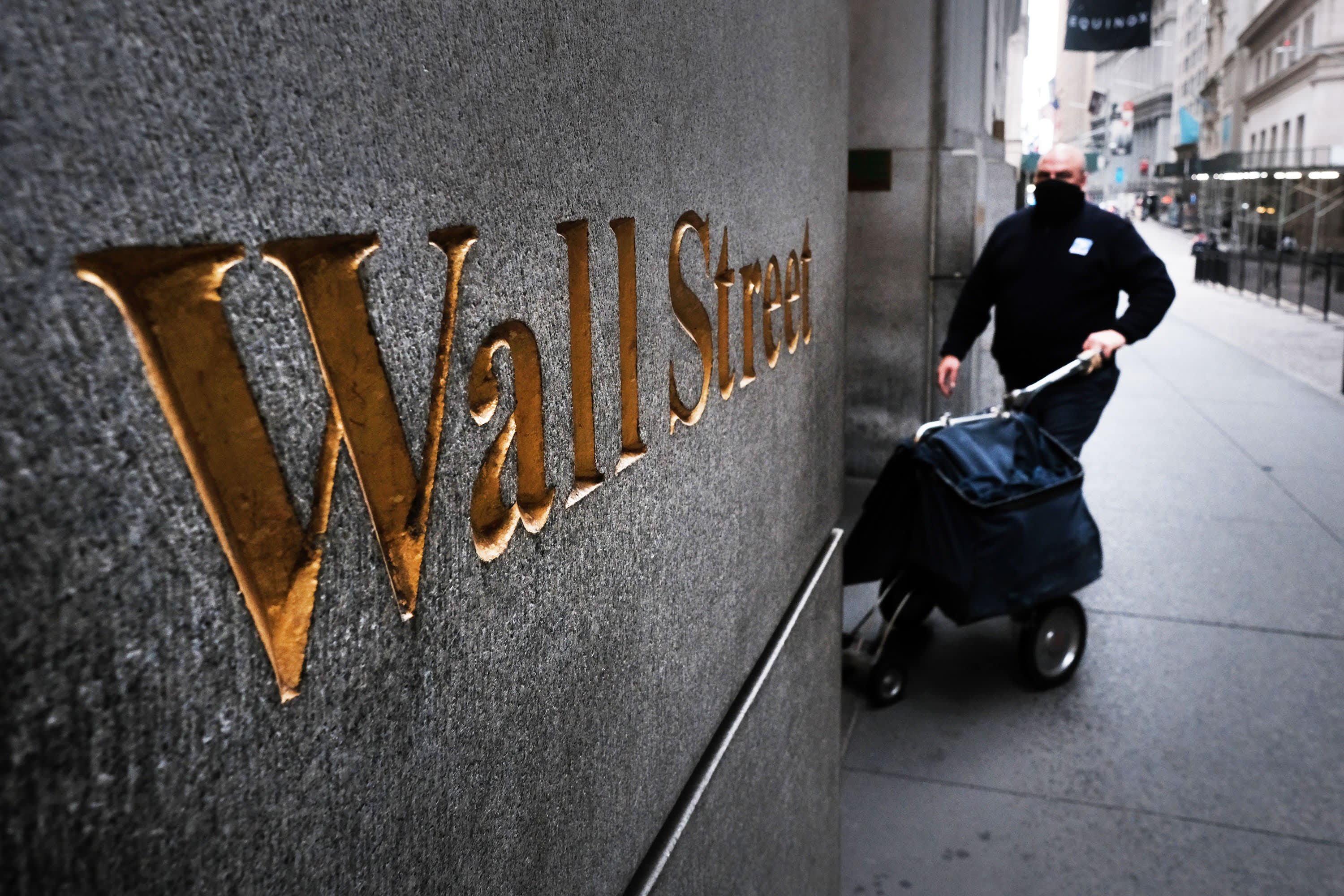
Stocks clawed back on Friday from the steep losses that followed President Donald Trump’s coronavirus diagnosis after House Speaker Nancy Pelosi signaled progress in relief negotiations.
The Dow Jones Industrial Average was down more than 400 points at one point after Trump said he tested positive for the virus overnight, pushing concerns about a second wave and a slower economic reopening into the foreground.
Jenny Harrington, CEO of Gilman Hill Asset Management, said Trump’s positive diagnosis should be put into perspective.
“I don’t think that this changes too much in reality. I like to go to what’s statistically probable here, and what’s statistically probable is that we’re pretty much on the same path this morning that we were on yesterday … Dr. Gottlieb was on earlier and you asked him to be clinical in his thoughts. So from a market perspective, I’ll try to be clinical, too. And what Gottlieb said was that there’s a 3.4% chance maybe of mortality, which means there is a 96%-plus chance that President Trump is fine. I think we have tremendous checks and balances here. I think that we don’t depend on one person even though it might feel like we do. So I think that what we ultimately see is that this stimulus marches, that the Supreme Court nomination marches on, the market marches on, the economy marches on and that life marches on in general.”
Jim Iuorio, managing director at TJM Institutional Services, said uncertainty may have been priced into the market already.
“The markets hate uncertainty and that’s what we’re seeing most this morning, too, but there’s something I’d like to point out, too, is that the reaction to that uncertainty is generally fueled by market position and people’s attitude towards risk going into it. When we started this even just [Thursday], you know the VIX is still up around 30, which suggests to me that people know that there’s risks ahead.”
Sarat Sethi, managing partner at Douglas C. Lane & Associates, said any weakness should be expected.
“This is just causing much more uncertainty in a market that was already facing uncertainty whether it came through the fiscal stimulus and elections, so you throw this on top of it, and the market was already in a fragile state and our economy is in a fragile state. So, but having said that, you know, we are still keeping our positions, I think the market has had a good run since March. Are we going to give some of it back? Absolutely but that was expected.”
Jim Cramer, host of CNBC’s “Mad Money,” is highlighting the stocks that should perk back up.
“What I call this is the V-shaped stock market versus the L economy and the V stock market includes most of the large tech companies, many which are down right now but I think could rally, the semiconductors, lots of positive chatter about those, these are ones that are involving secular change particularly 5G. We remain steadfast with the idea that people stay at home to work, anything that works like that … I don’t want to ever say that it’s business as usual because then I’ll be viewed as being a callous individual, but I do believe that there’ll be many stocks that will initially go down like a Tesla … and then they can rally.”
Diane Swonk, chief economist at Grant Thornton, said increasing risk could impact consumer behavior in one demographic more than others.
“I think the most important issue is the course of the virus determines the course of the economy. We know behavior is the dominant factor that forces people to pull back particularly baby boomers who are older and at higher risk of contagion. … They pull back when risk of contagion go up and the number of cases go up. That’s occurred time and time again regardless of what’s happened with regard to lockdowns and I think that’s a very important lesson to remember right now, that wrestling the virus to its knees is critical to sustaining momentum in the U.S. economy, and it is really critical also to understand there’s underlying scarring now starting to show up in the labor market.”
David Kelly, chief global strategist at J.P. Morgan Asset Management, said the economy depends on getting the virus under control.
“Obviously the president is older, he’s in a higher-risk group. The fact that he’s a man rather than a woman increases his risk but still when we’re talking about a very low probability that he’ll be incapacitated or something worse so most likely the election is held on schedule Nov. 3, the president is inaugurated on Jan. 20 without a problem. … It just underscores that we’re not going to get back to normal until we control the virus and what we need is a national unified campaign to wear masks to reduce the spread of this because what it’s doing is if you look at things like the airline industry, we’re still down 70% in terms of travel. And when you have news like this it’s just going to compound [the worry], for a lot of people it’s going to say it’s not safe to go back to restaurants, it’s not safe to travel so we really can’t get back to normal until we do that.”




